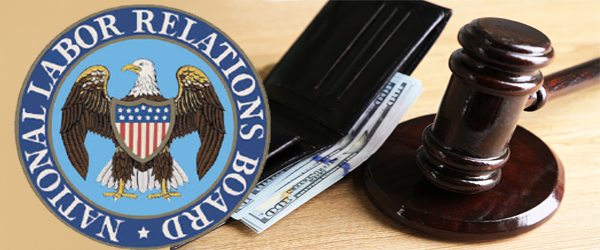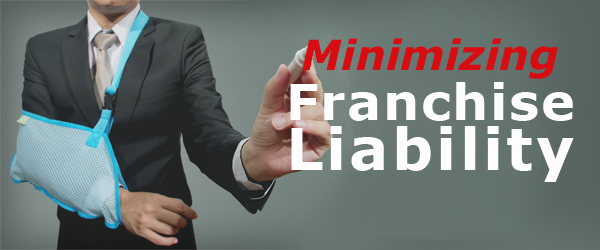Avoid Liability for Acts & Incidents at Franchisee Locations
bkurtz@lewitthackman.com
tgrinblat@lewitthackman.com
November 2014
Risky Business: Franchising Too Early
Barry Kurtz was quoted in the Los Angeles Business Journal regarding the dangers of selling franchises based on the success of only one or two company stores. Click here to read the entire article: Solo Shops Buy Into Franchises.
Common Ground: Craft Brews
The laws governing the distribution of beer are very similar to the laws governing the franchise and distribution of other products or services. Get the details in Barry Kurtz and Bryan H. Clements’ recent publication in the Orange County Lawyer here: Comparing Franchise and Beer Distribution Relationships.
FRANCHISOR 101:
Avoid Liability for Acts and Incidents at Franchisees’ Locations
There has been a lot of news lately about risks of franchisors being liable for acts and incidents at franchised locations. The National Labor Relations Board’s general counsel recently announced he intends to claim McDonald’s Corporation is liable for labor violations concerning employees of franchised locations who protested for higher wages.
In California, an appellate court ruled Domino’s Pizza could be liable for sexual harassment alleged against the manager of a franchised location. The State Supreme Court reversed and ruled that Domino’s Pizza is not liable.
Three main legal theories are used to claim franchisors should be liable for what happens at franchised locations.
- Someone may claim a franchisor exerted so much control over details of the franchise relationship that courts should find the franchisee is not truly independent, but due to the controls, has become an extension of the franchisor itself – an agent or employee.
- Some people claim the franchisee identified itself so completely with the franchisor, without any indication of being independent, that the person making the claim thought the franchised location was just a branch of the franchisor, not an independently owned and operated business.
- Or the claim is sometimes made that the franchisor is directly responsible for an injury at a franchised location. One common example is the claim that the franchisor selected equipment negligently.
Rather than fight liability through litigation, franchisors can take pro-active steps to reduce the risks of being sued, or held liable, for incidents at franchised locations. Here are a few steps that can be taken:
- Allow franchisees as much freedom as possible when it does not jeopardize the brand. Stated differently: don’t over-control franchisees. They should hire and fire their own personnel, set compensation, and make all the other decisions that business owners make. The franchisor should only implement those controls that are needed to protect the franchisor’s brand. For example, control over decor, good customer service, quality product or service, and cleanliness. Matters that are not necessary to protect the brand should be left to the franchisee to control.
- Let the public, suppliers and others know that the franchise is independently owned and operated. Notice of independent ownership can be on signs, store placards, advertising, business cards, stationery, checks, lists of locations, the franchisee’s fictitious business name filing and the franchisee’s form of job application. The franchisor can tell the public in its advertising and on the Internet that its locations are independently owned and operated.
- Operate the business and recruit and train franchisees with care. A good way to avoid liability is to not have an injury or other incident to begin with. Recruit and award franchises only to those who will follow the system and act properly toward personnel, customers and others. Require franchisees to be trained in safety and good customer service and conduct their businesses honestly and in good faith. Use care in designating construction standards and equipment. If an inspection discloses a health or safety hazard, follow up with the franchisee to ensure the hazard is eliminated. (See Franchisee 101 below). These steps can mean fewer accidents and injuries. Fewer of these mean less risk of claims against anyone, including the franchisor.
- Maintain insurance and require franchisees to maintain insurance naming the franchisor as an additional insured. Broad liability insurance with endorsements for all possible risks can mean that if a claim is made, the insurance company for the franchisor or the franchisee will provide the defense, work to get the case settled, and pay if there is any liability. Consider requiring your franchisees to obtain and maintain employment practices liability insurance with a co-defendant endorsement for your benefit.
- Similarly, the franchise agreement and other agreements should provide for indemnification from the franchisee. This can be accompanied by a personal indemnification and guaranty from individual owners of the franchise. When individual franchise owners have their assets at risk, their promise to indemnify and guaranty leads to more careful operation and reduces the risk and the franchisor’s ultimate exposure to claims and liabilities.
By following these steps, a franchisor can reduce the risks of claims and liabilities for acts and incidents arising from its franchisees’ operations.
FRANCHISEE 101:
Avoid Acts & Omissions That Expose Your Franchisor to Potential Liability
A West Virginia Court refused to dismiss an action brought under its state workers’ compensation law. That law permits an employee to recover greater damages when deliberate intent exists.
An employee of a Hardee’s franchised restaurant suffered first and second degree burns from spilled hot grease while manually cleaning a fryer box. The employee brought an action against the restaurant franchisee, as well as the franchisor. He claimed the franchisor should be liable based on allegedly having actual knowledge of unsafe working conditions at the restaurant, providing the equipment and setting the safety procedures.
The employee alleged the frying machine’s pump and filter were broken for a long time, requiring manual cleaning which led to his injuries. The Court noted the franchisor presumably had actual knowledge of the long-standing unsafe working conditions because the franchisor provided training, supervision, inspections, equipment, cooking supplies and procedures for operation of the restaurant. The franchisor argued it did not control daily operations and therefore had no legal duty to the employee. But the court disagreed and held it was reasonable to infer the franchisor had control over the equipment and procedures that contributed to the injury. As a result, the franchisor owed the employee a legal duty to use reasonable care and the franchisor’s conduct created a risk of physical harm.
The lawsuit and resulting ill-will between the franchisor and franchisee could have been avoided had the franchisee repaired the defective equipment when notified by the franchisor to do so.
For details about the case, read: Estate of Nathaniel Hamrick v. Restaurant Management Group, LLC.


